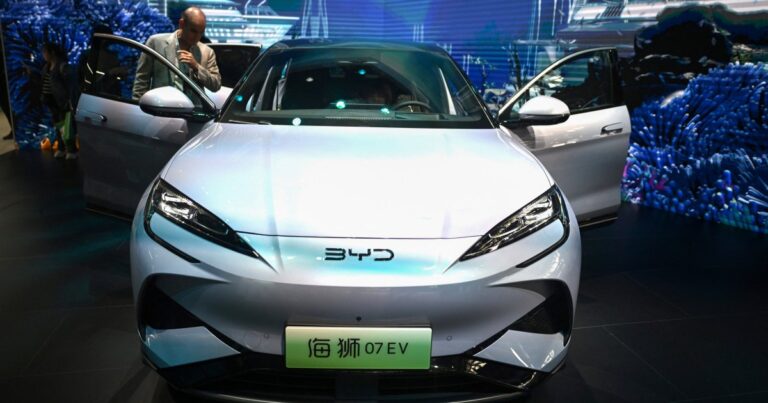Canada said its auto industry faces unfair competition from China’s “state-driven” global glut of EVs.
Canadian Deputy Prime Minister Chrystia Freeland said the country is considering whether to impose import tariffs on Chinese-made electric cars and would seek public input on the idea.
Foreign Minister Freeland said Monday that the Canadian auto industry faces unfair competition from China’s “state-driven excess capacity policy,” and that the Canadian government would open a 30-day public comment period on July 2 on how it could respond.
“Chinese manufacturers are intentionally creating a global supply glut that is hurting EV manufacturers around the world, including in Canada,” Freeland told reporters in Vaughan, Ontario, echoing concerns raised by the United States and the European Union.
Freeland said the national consultation would help determine the government’s policy response, which could include tariffs on imports, adding that the step would align Canada with its allies in Washington and Brussels.
U.S. President Joe Biden last month announced sharp tariff hikes on a range of Chinese imports, including electric vehicles. The European Commission, which oversees trade policy for the 27-nation bloc, plans to impose tariffs of up to 38.1% on Chinese manufacturers including BYD, Geely Automobile and SAIC Motor, as well as Chinese-made Tesla and BMW vehicles.
China denies accusations that it has unfair subsidies and overcapacity, and says its EV industry development is the result of its advantages in technology, markets and industrial supply chains.
An opinion piece published in China’s state-run Global Times before Freeland’s announcement on Monday argued that “Canada should remain strategically rational” and not “sacrifice normal economic exchanges with China for Washington’s strategic self-interest.”
In an editorial, a Global Times reporter said Canada’s tariffs on Chinese-made EVs “may undermine market confidence among Chinese investors, worsen bilateral relations and hinder normal economic and trade cooperation.”
Prime Minister Justin Trudeau’s Liberal government has sought to position Canada as a key part of the global EV supply chain, but has come under pressure at home to compete with Chinese-made EVs.
The premier of Ontario, Canada’s most populous province and auto manufacturing hub, last week called on Ottawa to impose tariffs of at least 100% on Chinese-made electric vehicles to protect jobs.
Freeland did not go into details about what Ottawa’s potential measures might be, or whether they might also cover EV parts such as batteries, but said all possibilities are on the table.
“We are not ruling anything out,” she said, adding that “we are deploying our strongest anti-trade tools.”
Canada has signed deals worth billions of dollars to bolster Ontario’s manufacturing heartland and attract companies involved in all parts of the EV supply chain.

